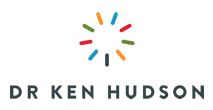Want better, more original ideas?
A good starting place is to consider what sort of mood you are in.
A meta-analysis conducted by academics at the University of Amsterdam confirmed what we know intuitively: you are more creative when you are in a positive mood.
The reverse is also true: if you are in a negative mood (ie. fearful, anxious) you are less likely to be creative.
This is fascinating research, but how can marketers and communicators use this finding in their next brainstorming session?
Here are my suggestions based on my experience as a strategic planning facilitator:
1. Only invite positive people. The creative but surly individual can impact on the mood of everyone else – besides, they are often better off working by themselves.
2. Give people an emotional context for why the brainstorming session is being held (eg. the ideas we are creating here can help our consumers to lead more fulfilling lives).
3. Hold the brainstorming session when participants are more likely to be up-beat.
This could be first thing in the morning or on a Friday or over a drink at the end of the day.
4. Show a funny, inspiring video or play a stirring piece of music at the beginning or throughout the session.
5. Hold the session in an environment which exudes positive emotions.
It’s very hard to be innovative in the head office board room.
6. Design the session so that it is fun, playful and engaging.
7. Stay with the energy in the room. If you are leading the brainstorming session this is a particularly important suggestion.
If there is energy, laughter and banter then the chances of a generating a big, new idea is greatly enhanced.
8. Try ‘blitzing’. We know from another piece of research by Emily Pronin that thinking quickly can lead to a lift in mood which in turn leads to enhanced creativity.
That is why I suggest starting by having everyone trying to generate nine ideas in two minutes.
Instantly everyone is engaged, contributing and the session is off to a great start.
9. Lastly, ensure that you are in a positive mood before you enter your next brainstorming, ideation or creative thinking session (if you are not put on a smile anyway and you soon will be).
It is a paradox, but while the outcome of any brainstorming or ideation session might be serious, the process itself cannot be.
In my experience facilitating any successful idea or creative thinking session has more to do with good planning rather than good luck.
Reference for the meta-analysis mentioned: ‘A meta-analysis of 25 years of mood-creativity research: hedonic tone, activation, or regulatory focus?’ by M Baas, CK De Dreu and BA Nijstad published in Psychology Bulletin. Accessed from: http://www.ncbi.nlm.nih.gov/pubmed/18954157
* First appeared in Marketing
